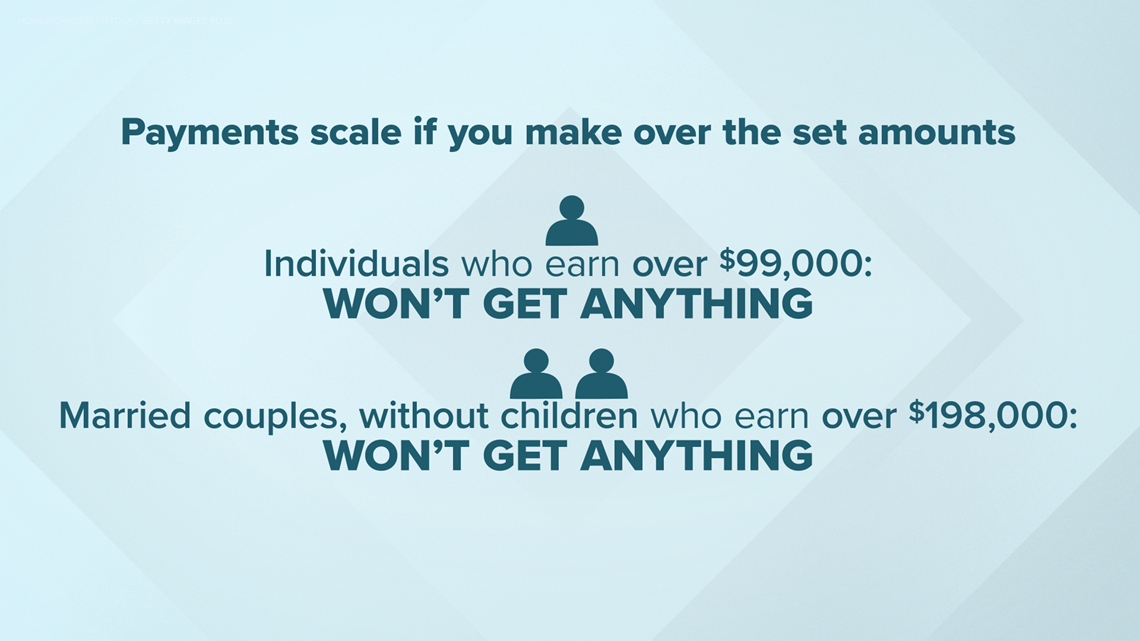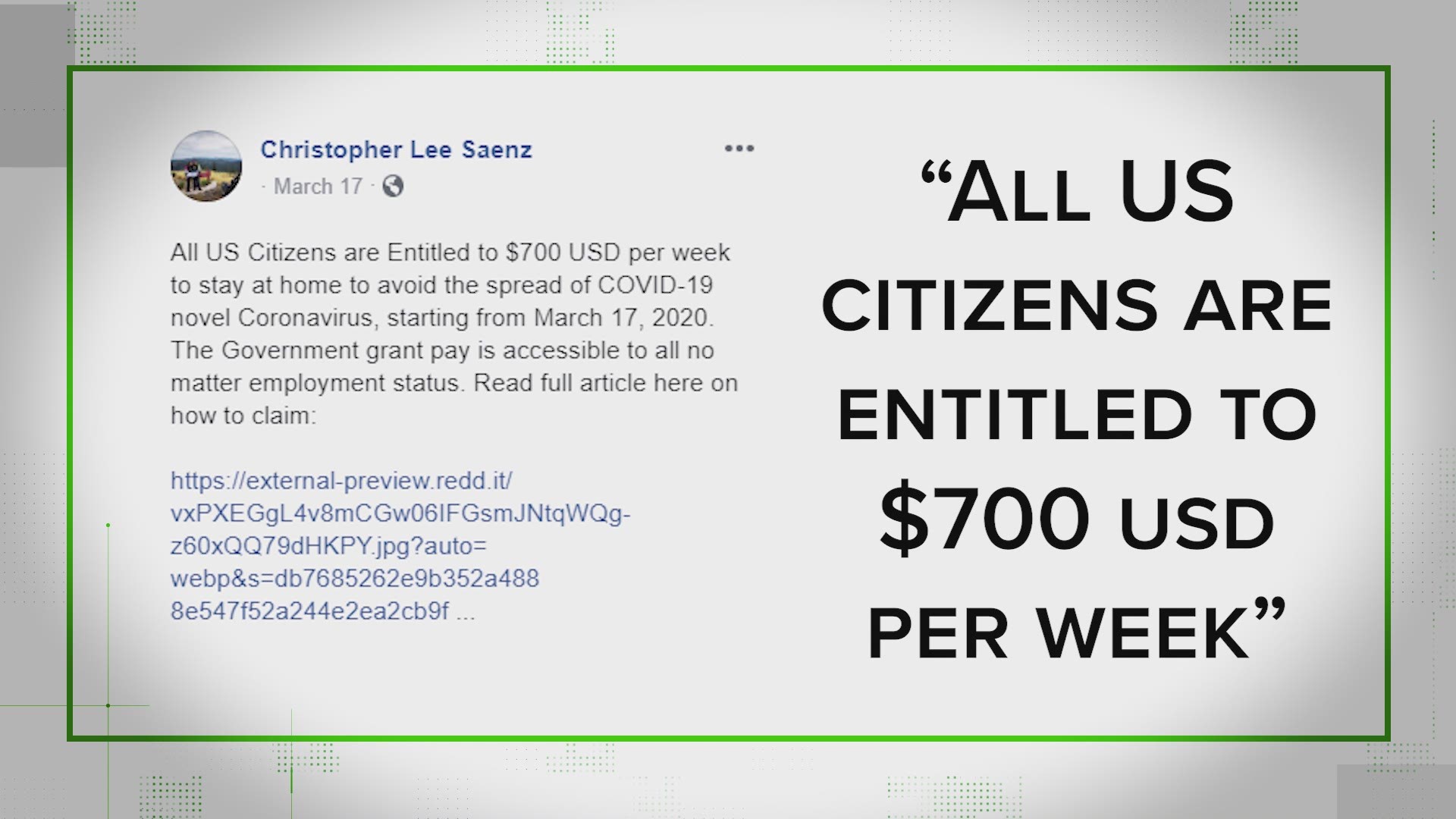WASHINGTON — The Internal Revenue Service and the Treasury Department say Americans have already started to receive their economic impact checks.
The IRS is asking people not to call the agency, and says most people will not need to take any action to receive their money.
The payments are part of the $2.2 trillion rescue package signed into law last week by President Donald Trump aimed at combating the economic ravages of the coronavirus outbreak.
While the IRS says most people do not need to take any action to get the money, some who don't typically file returns — including senior citizens and low-income people who might not traditionally file tax returns — may be confused. The government had urged those in these groups to file taxes and then later reversed course for certain groups.
The IRS and Treasury have updated their guidance on how to ensure everyone gets paid.
When will the payment arrive?
On Saturday, the IRS said it had deposited the first wave of Economic Impact Payments into bank accounts. The agency added that it will "continue issuing them as fast as we can."
The easiest way to know whether your payment has arrived is to check your bank account. Later this week, the IRS will launch a new tool to help taxpayers track their stimulus checks.
"Get My Payment" will provide people with a date that their check will either be directly deposited in to their bank or sent out via mail. It's expected to be available for use by April 17.
Mailed checks sent by income level
If you don't have direct deposit set up with the IRS, then you'll receive your check through the mail. Americans with the lowest income will get mailed checks first, the Washington Post reported.
Here's the timetable for the first checks, per IRS documents seen by the Post:
- Taxpayers with income up to $10,000: April 24
- Taxpayers with income up to $20,000: May 1
- Taxpayers with income up to $40,000: May 15
The rest of the checks will be issued by gradually increasing income increments each week. Households earning $198,000, who file jointly, will get their reduced checks on Sept. 4.
The last group of checks will be sent on Sept. 11 to those who didn't have tax information on file and had to apply for checks, according to the Washington Post.
Who gets an economic impact check?
Every American earning up to $75,000 in adjusted gross income and who has a Social Security number will receive a $1,200 payment. That means married couples filing joint returns will receive the full payment — $2,400 — if their adjusted gross income, which what you report on your taxes, is under $150,000.
The payment steadily declines for those who make more. Those earning more than $99,000, or $198,000 for joint filers, are not eligible. For heads of household with one child, the benefit starts to decline at $112,500 and falls to zero at $146,500.
Parents will receive $500 for each qualifying child.


Direct deposit/check information
Most Americans do not need to do anything to get their economic impact check. The IRS will calculate and automatically send the economic impact payment to those who are eligible.
For anyone who has already filed their 2019 tax returns, the IRS will use that information to calculate the payment amount and send it out.
For anyone who hasn't filed their return for 2019, the IRS will use information from their 2018 tax filing to calculate the payment. The economic impact payment will be deposited directly into the same banking account reflected on the return filed.
What happens if the IRS doesn't have someone's direct deposit information? In a few weeks, the Treasury plans to develop a web-based portal for individuals to provide their banking information to the IRS online so that individuals can receive payments immediately as opposed to checks in the mail.

